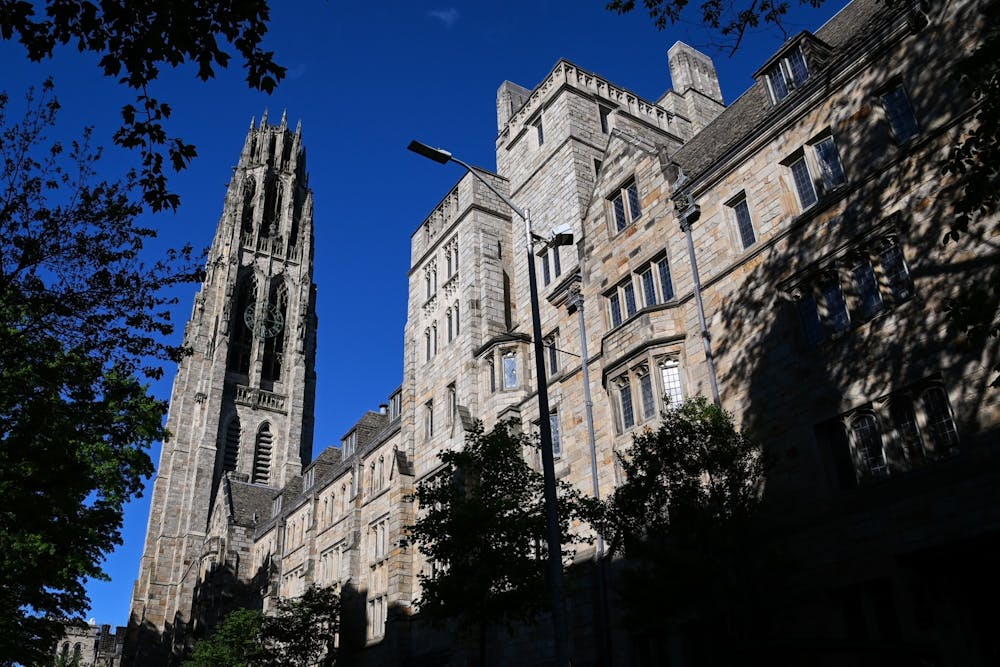
“What if Yale finds out?”
It was difficult to get into Yale, she thought. So what happens when you feel exiled at your own university?
The 20-year-old Yale student headlined in William Wan’s Washington Post article articulated a deeply relatable fear that many students here at Penn encounter at some point of their college career. Often, Ivy League students feel caught up in a symbiotic relationship with their institution, or like they have a blood debt owed to the admissions officer that tipped their profile from “maybe” to an acceptance.
To summarize the now infamous Washington Post article, Yale recently came under fire for its horrendous leave of absence policy, specifically regarding student leave for medical reasons. The article voices how, at Yale, students suffering with mental illness undergo a mentally burdening process from the initial pressure to depart from campus to the strictly enforced reinstatement policy in which students must reapply to the institution in order to return. Until recently, Yale required students to take two courses at another university while on leave so that they remain academically competent when they return to the institution’s rigorous curriculum. Yale students are also barred from visiting campus while on their leave.
Yale’s initial response was equally, if not more horrendous than how the article portrays the institution. Yale doubles down in their response, refusing to provide figures on mental health withdrawals or otherwise clarify the situation. Rather than acknowledging or validating student’s grievances, Yale expresses that it is “deeply disturbed by the comments made in this article” and dodges the statistics and criticisms presented.
“I found the Washington Post article deeply disturbing for the misinformation it contains about Yale and for the harm it can do to students by perpetuating the damaging narrative that it is more important to stay in college than to take time to heal,” said President Peter Salovey in letter addressed to the Yale community. “We also continue to increase resources to support students. Last academic year, Yale’s Mental Health and Counseling (MHC) hired thirteen new clinicians, including those recruited for YC3 [Yale College Community Care]. MHC has a diverse staff in terms of identity as well as specialties.”
What is more “deeply disturbing” is that to the Yale students who read the letter, this response is not only disappointing but demeaning. The letter’s defensive rhetoric protects the institution’s interests, not the students who actively seek out professional help from any campus resource they can and feel let down by the lack of caliber.
Medical leaves of absence of any kind are often taken to allow the person space to mentally and physically heal, as well as re-evaluate their situation. Medical leaves of absence (MLOAs), should always be made voluntarily, with little pressure from outside forces. If not, the leave can qualify as an involuntary leave of absence, in which an institution forces a student off campus.
Leaves of absences are deeply personal, and students expecting to take one understand that they not only lose access to their education for a period of time, but they also become deprived of a support group of friends and mentors that may not be available to them at home.
I took a leave two semesters ago, and thankfully, I was working with administrators that made the process as smooth as possible. However, because leaves of absences in general are stigmatized, there were parts of the process where I felt alone. As I was learning about Penn’s leave policy in the College Office, I was also emailing professors about my decision, consulting the financial aid office about how my leave could impact my financial aid as a highly aided student, and texting my friends goodbye. Even thinking about taking a leave was frightening, but I was lucky enough to be supported by my community, and in the end, I do not believe that my medical leave was an involuntary one.
Despite my positive leave of absence process, others have had less successful experiences. Penn obviously has a long way to go. Surprisingly, Penn has the best leave of absence policy in the Ivy League (with a score caveat of a mortifying D+ according to a Ruderman White Paper). Penn could improve by better communicating its policies, especially for students who are not familiar with what a leave of absence entails.
Let’s be honest, taking a break is terrifying. But for some students during their time at Penn, taking a leave of absence (whether for a medical reason or not) could be a transformative decision in which their institution could be at the very least, transparent and supportive throughout the process.
Many of my friends have thought about taking a leave at least once during their time at Penn. Some have already taken the leap. Yes, Penn’s leave of absence policy is far from perfect, but the responsibility of ensuring a fair, smooth LOA and return to campus does not fall upon one person nor one department. It most certainly should not fall upon the student.
Columnist's Note (1/19/2023):
Immediately following the time of writing, Yale came out with “sweeping changes” to their leave of absence policy following the ongoing class-action lawsuit against the institution for mental health. Though such changes in terminology (describing the process as “taking a break” rather than “re-applying to the university” and “readmission” rather than “reinstatement") and providing insurance over leave are progressive steps towards better student mental health advocacy, there are still stipulations. Imposing involuntary LOAs upon students as well as the nature of LOAs can be harmful and not beneficial to the overall student wellbeing. As of now, Yale is still in negotiations with the plaintiffs.
CATHY LI is a College sophomore studying English and design from Brooklyn, N.Y. Her email address is licathy@sas.upenn.edu.
The Daily Pennsylvanian is an independent, student-run newspaper. Please consider making a donation to support the coverage that shapes the University. Your generosity ensures a future of strong journalism at Penn.
Donate







